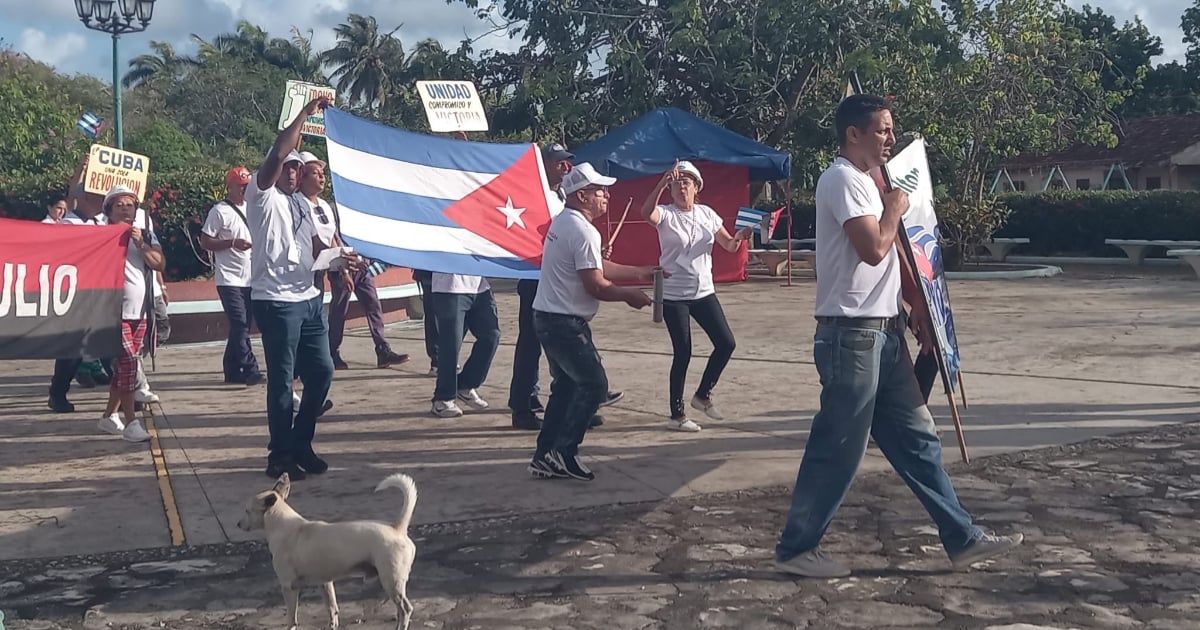As Cuba grapples with one of its most severe economic crises in recent history, the Havana regime has called upon its citizens to participate in the May Day march. Miguel Díaz-Canel, the country's leader, took to X to deliver a message steeped in ideological rhetoric: “Let us march against the blockade and the resurgence of fascism. Against the genocide in Gaza and the silent genocides caused by the sea of injustices threatening our species. Let us march for the better world that Cuba desires and deserves. See you on #1Mayo!”
Disconnected from Reality
Rather than resonating with the everyday concerns of the Cuban people, this message has sparked backlash on social media, where numerous comments highlight the nation's dire situation: frequent power outages, food scarcity, broken-down transportation, and hospitals lacking basic supplies.
One social media user mockingly responded, “The only thing you can breathe here is blackout,” directly addressing the ongoing electricity shortages plaguing several provinces. The remark was accompanied by the well-known phrase, “Let Sandro go,” referencing Sandro Castro.
Propaganda in a Tight Spot
Days prior, the Cuban Presidency released a document on its website titled "Message to the Workers and People of Cuba," in which Díaz-Canel praised the "pride" of maintaining International Workers' Day celebrations "even amidst the harshest shortages."
State-run media joined the campaign. The official publication Granma posted on Facebook: “Cuba is already breathing May 1st. No one will take away from Cubans their tradition of May Day. Neither the blockade nor the economic hardships will dent [...] the support of this people for their Revolution.”
The Balance of Duty and Fear
Despite the challenges, many Cubans participate in the marches, not out of belief, but out of fear of work-related repercussions or institutional pressure. For state employees and students, attendance is often mandatory, with absence potentially leading to warnings, penalties, or loss of incentives.
Meanwhile, public discontent continues to grow, becoming increasingly visible on social media, in the surge of emigration, and in the progressively deteriorating quality of daily life. Instead of addressing these issues, the regime clings to outdated traditions, as if the procession could mask the absence of bread, power, and hope.
Understanding the May Day March in Cuba
Why are Cubans being called to march on May Day?
The Cuban government has called for the May Day march to protest against various issues such as the U.S. blockade, the resurgence of fascism, and to rally support for the Cuban Revolution.
What has been the public's reaction to the call for the march?
The public reaction has been largely negative, with many mocking the call on social media, highlighting ongoing issues such as power outages and food shortages.
How does the regime enforce participation in the march?
Participation is enforced through fear of repercussions, such as warnings or penalties, particularly for state employees and students who often face mandatory attendance.
